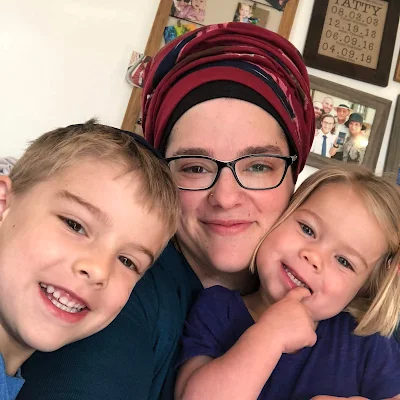 |
| Zusha and the Big Fish! |
“Come, let us reach an understanding, —says the LORD. Be your sins like crimson, They can turn snow-white; Be they red as dyed wool, They can become like fleece.”
Meat = red. White = the pasta. Boom! Except that we don't do meat, but the spinach and sun-dried tomatoes were hidden between layers of pasta. It works! IT WORKS!
Anyway. Am I ready? No. Does it matter? No. At least, that's what I keep telling myself. But you know me. I know me. It does matter, but I'm trying really hard to not let it matter.
Yom Kippur is hard. Neither Mr. T nor I fast well, and we've got three small kids who need us to be at our very best all. day. long. So, I'm trying to pull some understanding and forgiveness to myself based on this article on Chabad.org:
Let go of expectations for how a “real” Yom Kippur should look like. There are many ways to honor and celebrate Yom Kippur, and each year will be different, depending on the ages and needs of your children, as well as your own physical and emotional capabilities. Intense prayer may be out of the question for you, but you will still be experiencing Yom Kippur to its fullest.
The sages tell us that on Yom Kippur, itzumo shel yom mechaper—the essence of the day atones for us. Regardless of our prayers, meditation or hard work, Yom Kippur itself reveals that part of us that is always connected to G‑d, the part that doesn’t need to do anything or be anything other than what it is. This is our etzem, our essence.
Spending the day caring for your children is no less G‑dly than spending it in the synagogue. Wherever you are, you are at one with G‑d.
So, here I am, pounding Little Secrets and water instead of, well, anything else. My husband is bathing the kids, I put the baby down for bed, and now I'm anticipating what 5779 holds for me and whether I can honestly and truly commit to Daf Yomi while also blogging every day.
It's all about carving time out, having a schedule, prioritizing. Things I'd like to prioritize better? My husband, my kids, my self-care, my learning, my career growth, my happiness, my health. It's about time that I put everything in perspective and start prioritizing what matters. And the nice thing? I think my job gives me that space. I just have to take advantage of it and stop treating every work assignment like it's the end of the world.
Anyway, candle lighting is coming soon, and it's time to sip the last of my water and refocus myself for Yom Kippur. To really think about who I am, to celebrate these moments where we are closest to HaShem.
“For on this day He will forgive you, to purify you, that you be cleansed from all your sins before G‑d" (Leviticus 16:30).
As I plead for forgiveness, I also ask for strength to be inscribed in the book of life in the year to come.
I'm wishing one and all a g'mar chatimah tovah -- may you be inscribed in the book of life and have a meaningful fast. Catch you on the other side!












